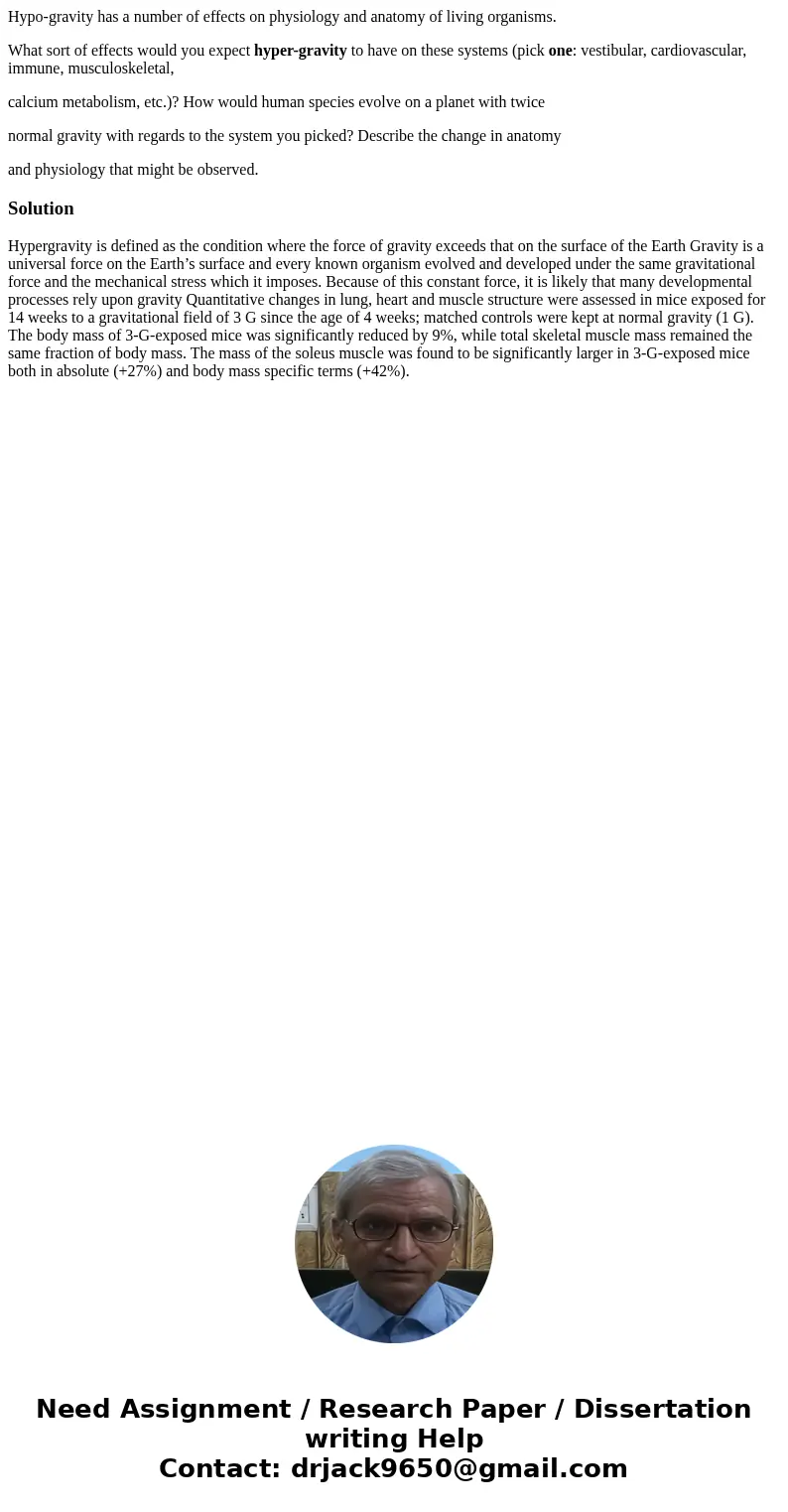Hypogravity has a number of effects on physiology and anatom
Hypo-gravity has a number of effects on physiology and anatomy of living organisms.
What sort of effects would you expect hyper-gravity to have on these systems (pick one: vestibular, cardiovascular, immune, musculoskeletal,
calcium metabolism, etc.)? How would human species evolve on a planet with twice
normal gravity with regards to the system you picked? Describe the change in anatomy
and physiology that might be observed.
Solution
Hypergravity is defined as the condition where the force of gravity exceeds that on the surface of the Earth Gravity is a universal force on the Earth’s surface and every known organism evolved and developed under the same gravitational force and the mechanical stress which it imposes. Because of this constant force, it is likely that many developmental processes rely upon gravity Quantitative changes in lung, heart and muscle structure were assessed in mice exposed for 14 weeks to a gravitational field of 3 G since the age of 4 weeks; matched controls were kept at normal gravity (1 G). The body mass of 3-G-exposed mice was significantly reduced by 9%, while total skeletal muscle mass remained the same fraction of body mass. The mass of the soleus muscle was found to be significantly larger in 3-G-exposed mice both in absolute (+27%) and body mass specific terms (+42%).
 Homework Sourse
Homework Sourse